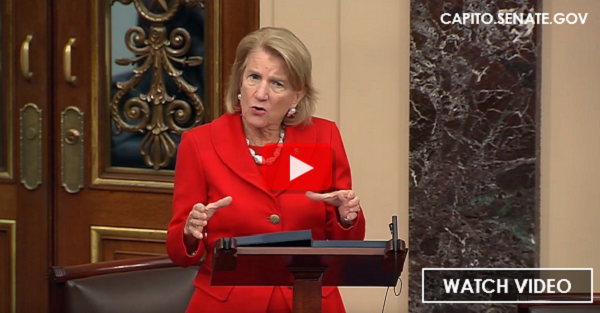
WASHINGTON, D.C. – U.S. Senator Shelley Moore Capito (R-W.Va.) today spoke on the Senate floor highlighting how the SUPPORT for Patients and Communities Act has helped West Virginia—and the rest of the nation—combat the opioid epidemic. The SUPPORT Act was signed into law one year ago.
“We realized after CARA that while we did great with money for rehab facilities and helping our first responders with NARCAN and other more immediate problems, there were other things that we didn’t focus on that we really need to focus on in order to have a comprehensive solution,” Senator Capito said in her speech. “That’s the children that are impacted in a home of addiction or exposure to addiction and also the jobs that are being lost because of it. So we went back to the drawing board, and we came up with the SUPPORT Act, which is landmark legislation, and we’re seeing real results.”
Senator Capito’s floor speech comes a day after she wrote an op-ed for the Huntington Herald Dispatch highlighting West Virginia’s role in shaping opioid policy for the country and how the SUPPORT Act has contributed.
Last week, First Lady Melania Trump invited Senator Capito to kick off a roundtable discussion about next steps now that the landmark legislation has been law for a year.
As a leader in the fight against opioids, Senator Capito introduced or led as a co-sponsor the following provisions in the SUPPORT Act, now law:
- A change to the 21st Century Cures Act State Targeted Response Grants formula that focuses federal funds on states like West Virginia that have been hit hardest by the opioid crisis.
- The Opioid Addiction Recovery Fraud Prevention Act, which will hold fraudulent substance abuse treatment programs and recovery centers accountable by empowering the Federal Trade Commission (FTC) to bring enforcement actions to combat such scams.
- Resources for communities to start or expand programs for coordination of care and treatment after an overdose, such as the successful Quick Response Teams (QRTs) that have had such success in Huntington, West Virginia, and are now expanding throughout the state.
- The Synthetics Trafficking & Overdose Prevention (STOP) Act, which will help prevent the shipment of synthetic opioids like fentanyl into the United States through the international mail system by imposing tough new requirements on the U.S. Postal Service and Customs and Border Protection.
- New resources to identify, prevent, and mitigate the effects of trauma related to the opioid epidemic among infants, children, and their families. Includes the creation of a task force to identify and disseminate trauma-informed best practices within federal grant programs; a grant program to link educational agencies with mental health systems to increase student access to evidence-based trauma support services; additional funding for the National Child Traumatic Stress Network; and the expansion of programs to increase the mental health workforce for this population.
- The Caring Recovery for Infants and Babies (CRIB) Act, which clarifies states’ ability under Medicaid to provide care for infants with neonatal abstinence syndrome in residential pediatric recovery centers like Lily’s Place in Huntington, West Virginia. It also reauthorizes the Residential l Treatment for Pregnant and Postpartum Women grant program Senator Capito worked to include in CARA and includes grants to help states implement plans of safe care for substance-exposed infants included in CARA.
- The Using Data to Prevent Opioid Diversion Act, which will provide drug manufacturers and distributors with data to identify pharmacies that are suspiciously ordering prescription opioids and provide law enforcement the authority to hold them accountable if they fail to use this data to identify, report, and stop suspicious orders of prescription opioids.
View Senator Capito’s full remarks here.
# # #